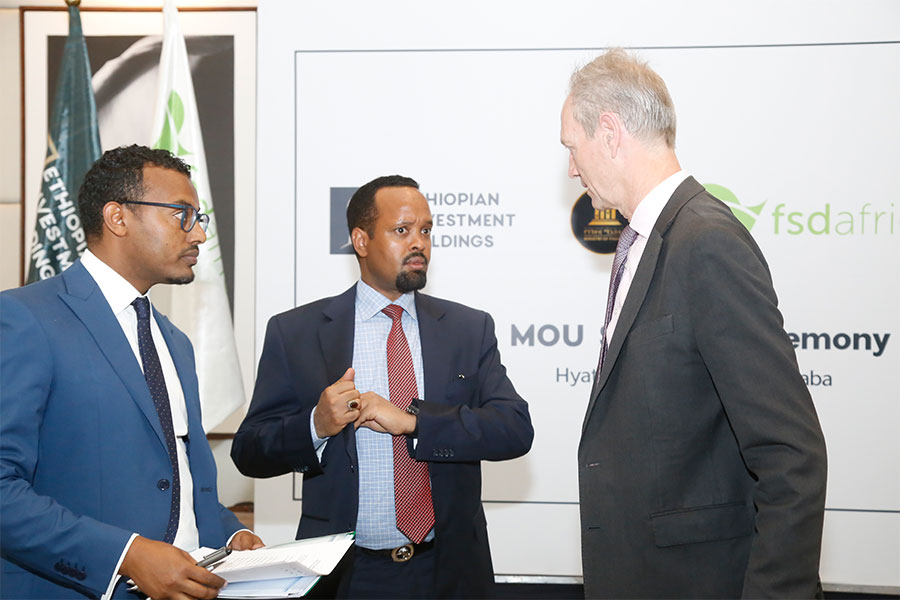
Fortune News | May 21,2022
Dec 11 , 2021.
There are few wiser words than the one attributed to Vladimir E. Lenin: "There are decades where nothing happens; and, there are weeks where decades happen."
Except for Ethiopia, it has not been a few weeks but a year.
A couple of years ago, Ethiopia was the darling of the Transatlantic (Western) world. A development success story aided by the generosity of the West, what a turn it was from a poster-child image of wars, displacement and famine in the 1980s. In the 2000s, the west saw Ethiopia as an emerging bastion of stability in a troubled region. It became one of the preferred destinations of the global capital. The West`s infatuation has finally culminated with a Nobel Peace Prize for Prime Minister Abiy Ahmed (PhD) for "his efforts in bringing a rapprochement with Eritrea," with which Ethiopia has been on “no peace, no war” terms for nearly two decades.
The romance the west has had with a script of reform has come to a halt beginning in November 2021 following the outbreak of the civil war. Relationships with the government cooled off. The West remained stubborn in its demands for the government to do a couple of things: a ceasefire, the withdrawal of foreign and irregular armed forces from war zones, access to unfettered humanitarian provisions, international investigations of atrocities committed, accountabilities of the perpetrators, and the media should be allowed to report.
Addis Abeba was displeased by some of these demands. But nothing irritates it more than the dare by the West in putting the federal army in parity with the armed forces in Tigray. Development assistances were withheld, sanctions threat increased, and high-level engagements between leaders cooled abruptly. The head of the United States` aid arm, Samantha Power, was denied an audience with the Prime Minister, a highly unprecedented incident going back three decades. The USAID provides crucial support in billions of dollars a year in food security, health and education.
Fuelled by official narrative, there is now a rising anti-Western sentiment among the public. Senior government officials have social media postings that do not mince words, attacking the United States and its senior officials. Precipitating this has partly been the revocation of Ethiopia’s eligibility, beginning January 1, from the African Growth and Opportunity Act (AGOA). This trading programme offers duty-free privileges to countries in the African continent.
The administration of Prime Minister Abiy and its allies see the media coverage by major global broadcasters and publications as misrepresenting the situation on the ground. They urge coverages by the Western media lack context and see them as part of efforts to pressure the government to accept terms it deems disadvantageous. Here too, as the leader of the global liberal order, the wrath has mostly been directed at the US, with Ethiopia`s officials convinced that the administration of Prime Minister Abiy is targeted for regime change. It is worth noting that this view has won traction from a large segment of the public here and abroad.
This has put the Biden administration on the defensive, spending much of its energy explaining a position it lacks clarity. There is no unity of purpose and action among the international community. The Transatlantic alliance has buried its head in the sand, unable to go beyond the lukewarm approach to what transpires in Ethiopia. There prevails a policy paralysis in Washington DC, where there is no interagency consensus over the cause, evolution and resolution of the war. The European Commission is not eye to eye with some of its member countries over how to deal with the crisis in Ethiopia. On the other end, the illiberal forces of the East - China, Russia, UAE and Turkey - have demonstrated their resolve both in diplomatic support and material provisions to the Ethiopian state.
There are ways of reconciling the views of the administration, which believes it is being pressured, and Western diplomats, including Jeffrey Feltman, US special envoy for the Horn of Africa, who insist that they are not taking sides. Indeed officials in Biden’s administration have long-standing relationships with the TPLF, which has now been designated a terrorist organisation by Ethiopia`s parliament. Some former diplomats have their sympathies public. The same goes true for former ambassadors who had served in Ethiopia with their support to Addis Abeba public.
Nonetheless, there is no evidence to believe an official and coordinated Transatlantic effort to unseat the Ethiopian government in motion. It is unlikely that the influence of a few individuals in the Biden administration would erase the lessons of past adventures with regime change.
Going by the official statements from the Western capitals, there are helpful inputs from them when it comes to the war. Centrist voices agree that this war should have never started, and a political difference should not have morphed into a militarised conflict. Regrettably, a war should not have been a response to bringing enduring peace to a highly polarised and troubled society. To the extent that the Transatlantic alliance wants to help get the suffering of humanity in this corner of the world to an end, through mediation and negotiations, it should be seen not as an adversary.
It would thus be a flawed diplomatic strategy to try and respond to the "unfairness" the administration feels directed at it in kind. The whole point of diplomacy is to find ways to work with other governments - even adversaries - without severing relationships or violent conflicts. It would be counterproductive for the administration to turn its back on the West on the perception - perhaps self-serving - that the latter has turned on it. It would be a bad idea to chase anti-American rhetoric as an antidote to perceived pressure.
Taking the long-term view could be wise. A drawn-out fallout with the Transatlantic community could jeopardise valuable relationships with multilateral institutions and the United Nations agencies. These are indispensable development partners that work with the population in almost every sector to ensure human security and welfare, address poverty, improve the economy and support the livelihoods of millions. Ethiopia eventually needs post-war rehabilitation and reconstruction programmes where the support of these development partners will no doubt be crucial.
The importance of maintaining strong relationships with the Transatlantic alliance and ensuring economic growth has recently been brought home by the rise in prices of petroleum products, including benzene, which went up by a historic high of over 22pc. For a non-oil producing country, fuel prices may have been too low in Ethiopia. But the urgency of beefing up foreign currency reserves and fiscal positions requires the assistance of development partners.
It is also a wise foreign policy strategy to keep all options open. Closing oneself from the West will permanently attach a country’s fate to the East, where illiberal political order hogs. This is almost always unwise as states within the Soviet Union’s sphere of influence learned three decades ago. With a new Cold War on the offing, it is a better strategy for Ethiopia to remain neutral and maintain strong relationships with all sides.
PUBLISHED ON
Dec 11,2021 [ VOL
22 , NO
1128]

Fortune News | May 21,2022

Sponsored Contents | Mar 28,2022
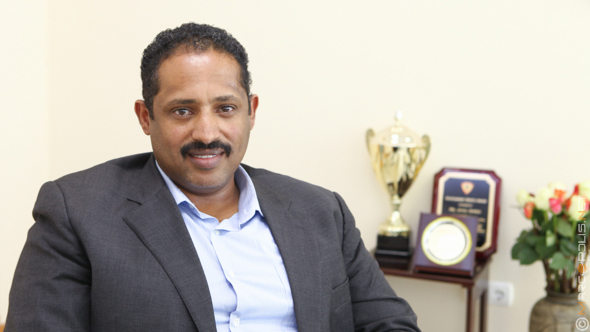
Radar | Sep 10,2021
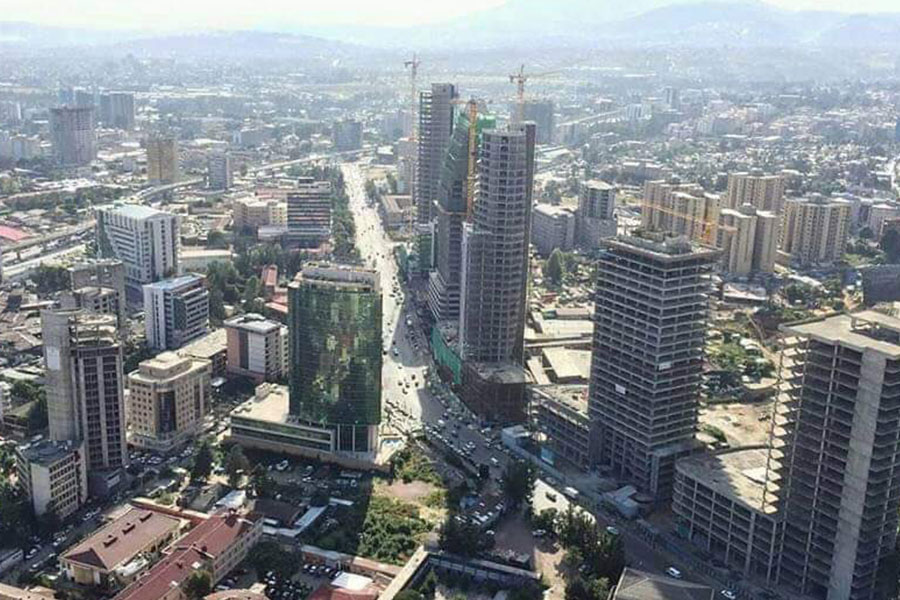
Agenda | Oct 16,2021
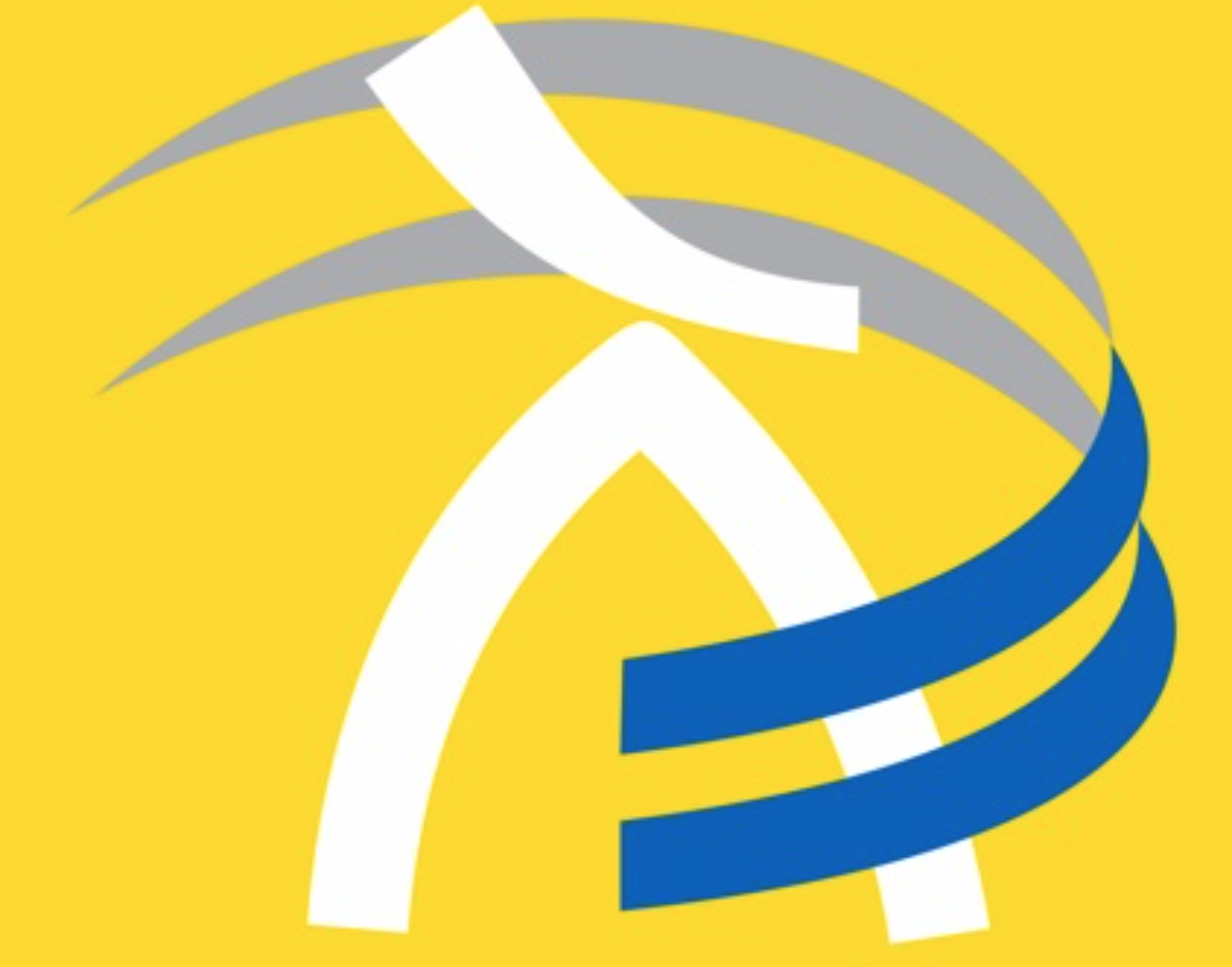
Fortune News | May 26,2021

Editorial | Oct 23,2021
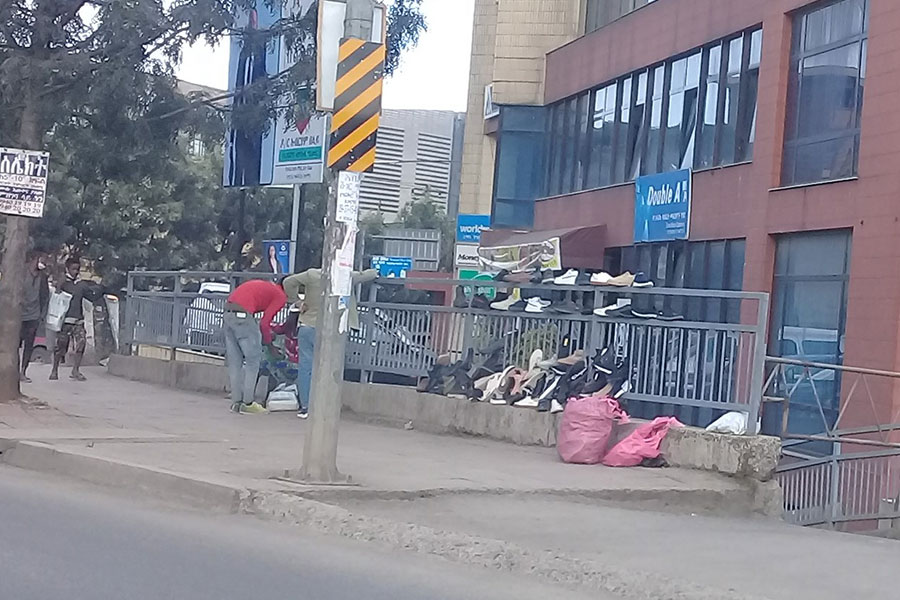
Radar | May 15,2021

Fortune News | Jul 11,2021

Fortune News | Oct 02,2021

Fortune News | Jun 19,2021

Photo Gallery | 173896 Views | May 06,2019

Photo Gallery | 164124 Views | Apr 26,2019

Photo Gallery | 154204 Views | Oct 06,2021

My Opinion | 136591 Views | Aug 14,2021

Dec 22 , 2024 . By TIZITA SHEWAFERAW
Charged with transforming colossal state-owned enterprises into modern and competitiv...

Aug 18 , 2024 . By AKSAH ITALO
Although predictable Yonas Zerihun's job in the ride-hailing service is not immune to...

Jul 28 , 2024 . By TIZITA SHEWAFERAW
Unhabitual, perhaps too many, Samuel Gebreyohannes, 38, used to occasionally enjoy a couple of beers at breakfast. However, he recently swit...

Jul 13 , 2024 . By AKSAH ITALO
Investors who rely on tractors, trucks, and field vehicles for commuting, transporting commodities, and f...

Oct 12 , 2025
Tomato prices in Addis Abeba have surged to unprecedented levels, with retail stands charging between 85 Br and 140 Br a kilo, nearly triple...

Oct 12 , 2025 . By BEZAWIT HULUAGER
A sweeping change in the vehicle licensing system has tilted the scales in favour of electric vehicle (EV...

Oct 12 , 2025 . By NAHOM AYELE
A simmering dispute between the legal profession and the federal government is nearing a breaking point,...

Oct 12 , 2025 . By NAHOM AYELE
A violent storm that ripped through the flower belt of Bishoftu (Debreziet), 45Km east of the capital, in...